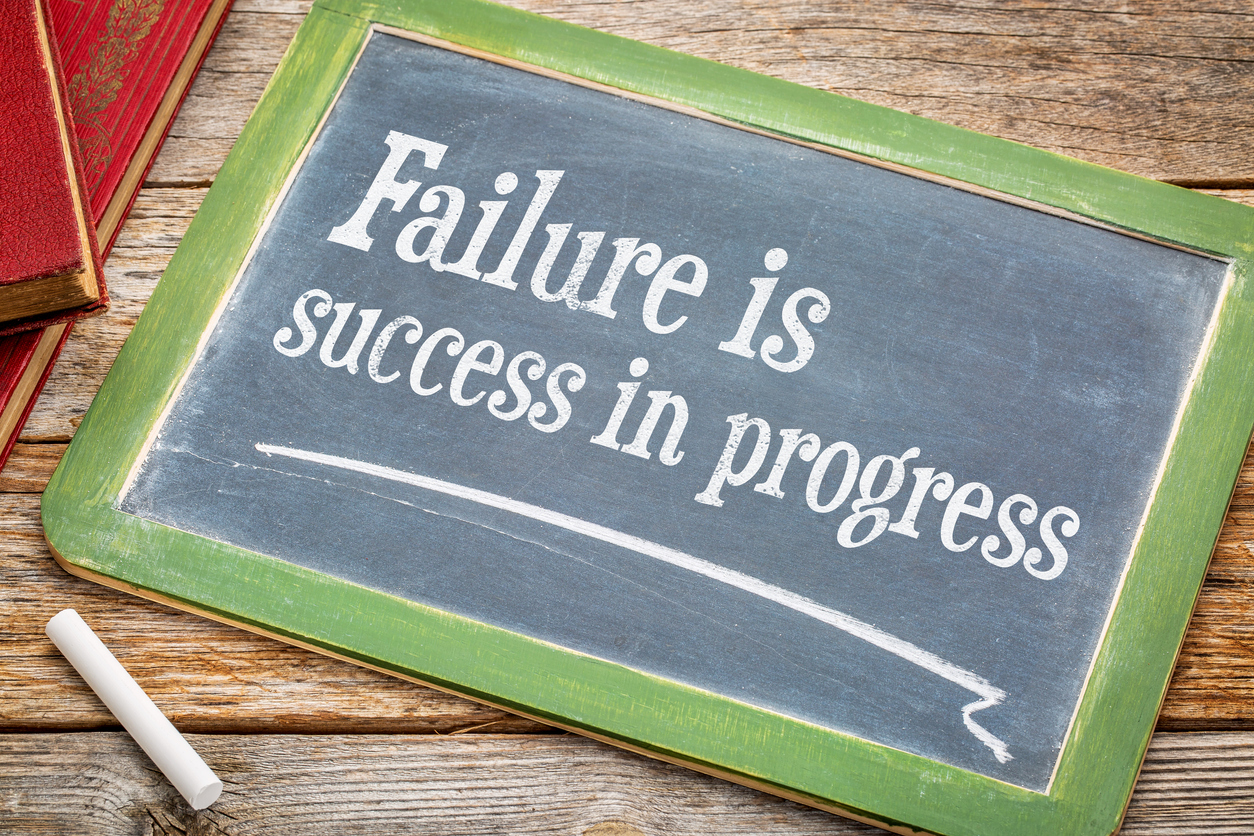Đang hot
Failure is a Powerful Tool for Success
“Mistakes, miscalculations, missteps…each is a learning opportunity. The past is just training. Failure just informs your future” (Haden, 2020)
In a recent article on Inc.com by Jeff Haden details a study which illustrates how valuable learning from mistakes or failures is a catalyst for change to those with whom you share your story. Odd as it may seem, people tend to perk up and pay attention when they hear about struggles or failures that you have overcome, more readily than if you expound on your successes.
“Even though science proves the value of sharing failures so others can learn: Negative information commands more attention than positive information. Negative information is processed more deeply. Negative information is remembered longer” (Haden, 2020)
The Harvard Business Review reported why a culture of in an organization and willingness to learn from failure is powerful. “The wisdom of learning from failure is incontrovertible. Yet organizations that do it well are extraordinarily rare. This gap is not due to a lack of commitment to learning” (Edmondson, 2011). Professor Edmondson, identifies a range of “failures” that help illustrate that all failures are not all bad.

https://hbr.org/2011/04/strategies-for-learning-from-failure
While there are instances where a leader needs to find out the root cause and who is directly responsible for a failure to discover what processes broke down, not every mistake or failure requires intensive dissection. In Professor Edmondson’s articles she outlines the spectrum of failures;
Blameworthy:
- Deviance
- Inattention
- Lack of Ability
Neutral:
- Process Inadequacy
- Task Challenge
- Process Complexity
Praiseworthy:
- Uncertainty
- Hypothesis Testing
- Exploratory Testing
The knee-jerk reaction to find blame and identify who is responsible for any mistake or failure in an organization drains a company and its leader of his or her power. ActionCOACHidentifies the ‘Point of Power’ as a pivotal place where leaders can choose to take control and be powerful models of behavior or choose a powerless path. Those leaders who choose to operate above the ‘Point of Power’ demonstrate three characteristics; Accountability, Ownership and Responsibility. Those who choose Blame, Excuses and Denial remain languishing below the ‘Point of Power’.
Demonstrating a willingness to acknowledge and accepting responsibility for mistakes is a powerful tool. Sharing the learning of any misstep or failure not only shows a leader’s humanity, it allows others to learn. It reinforces wanted behavior and diminishes the stigma of making mistakes.
Creating an environment where mistakes (within the praiseworthy zone) are seen as a positive is difficult. Supporting a company culture of learning however, can be transformational for any company. Instead of focusing on who did what, focusing on what lead to the outcome and how to improve processes and systems to avoid the same error in the future, can energize and strengthen your organization.
“Only leaders can create and reinforce a culture that counteracts the blame game and makes people feel both comfortable with and responsible for surfacing and learning from failures.” (Edmondson, 2011). Testing and measuring, trial and error allows an organization to make meaningful and incremental change without demoralizing the team. Edmondson explains further, how leaders can affect change, “They should insist that their organizations develop a clear understanding of what happened—not of “who did it”—when things go wrong. This requires consistently reporting failures, small and large; systematically analyzing them; and proactively searching for opportunities to experiment.”
Many companies and leaders find it challenging to establish a culture where mistakes and failures don’t signal doom. Why you ask? “Because examining our failures in depth is emotionally unpleasant and can chip away at our self-esteem. Left to our own devices, most of us will speed through or avoid failure analysis altogether. Another reason is that analyzing organizational failures requires inquiry and openness, patience, and a tolerance for causal ambiguity. Yet managers typically admire and are rewarded for decisiveness, efficiency, and action—not thoughtful reflection. That is why the right culture is so important” (Edmondson, 2011).
You have to ask yourself as the leader of your organization how willing you are to admit failure. How do you feel when you make a mistake and how do you apply the learning of a decision that doesn’t goes the way you expected? If you are consistent and transparent with your shortcomings and your mistakes, your team will begin to understand that an error doesn’t mean the end.
Consider some of the most advancement to humanity have come through arduous trial and error and experimentation. Putting a man on the moon; the electric light and flying all took methodical testing and measuring. Careful analysis of failures helped shape the next test, the next big step for human kind. It’s time to take failure off the shelf and dust is off in your company. What could you learn? What could you improve? What could you accomplish if you begin to view failure with a more positive light?
Success could be only one mistake away
Source ActionCOACH.com
Cùng Danh Mục
Khám phá thêm vô số bài viết khác cùng danh mục



